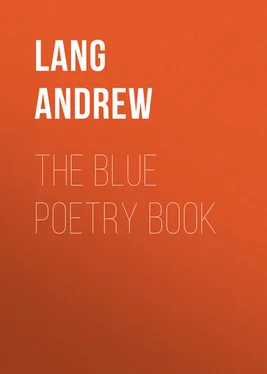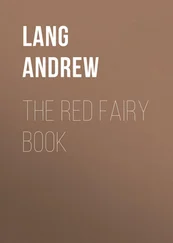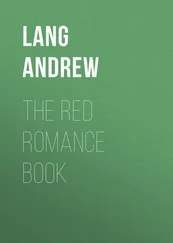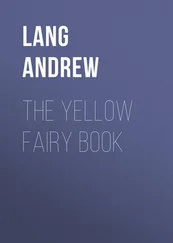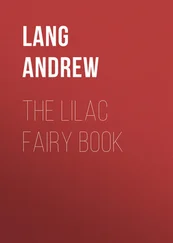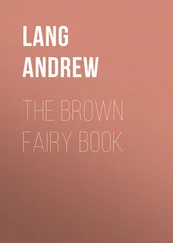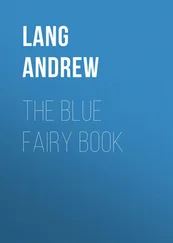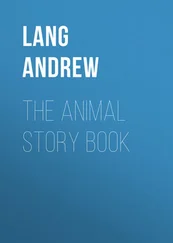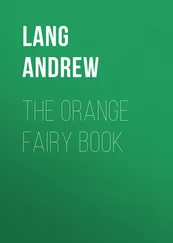Andrew Lang - The Blue Poetry Book
Здесь есть возможность читать онлайн «Andrew Lang - The Blue Poetry Book» — ознакомительный отрывок электронной книги совершенно бесплатно, а после прочтения отрывка купить полную версию. В некоторых случаях можно слушать аудио, скачать через торрент в формате fb2 и присутствует краткое содержание. Жанр: foreign_antique, foreign_prose, на английском языке. Описание произведения, (предисловие) а так же отзывы посетителей доступны на портале библиотеки ЛибКат.
- Название:The Blue Poetry Book
- Автор:
- Жанр:
- Год:неизвестен
- ISBN:нет данных
- Рейтинг книги:3 / 5. Голосов: 1
-
Избранное:Добавить в избранное
- Отзывы:
-
Ваша оценка:
- 60
- 1
- 2
- 3
- 4
- 5
The Blue Poetry Book: краткое содержание, описание и аннотация
Предлагаем к чтению аннотацию, описание, краткое содержание или предисловие (зависит от того, что написал сам автор книги «The Blue Poetry Book»). Если вы не нашли необходимую информацию о книге — напишите в комментариях, мы постараемся отыскать её.
The Blue Poetry Book — читать онлайн ознакомительный отрывок
Ниже представлен текст книги, разбитый по страницам. Система сохранения места последней прочитанной страницы, позволяет с удобством читать онлайн бесплатно книгу «The Blue Poetry Book», без необходимости каждый раз заново искать на чём Вы остановились. Поставьте закладку, и сможете в любой момент перейти на страницу, на которой закончили чтение.
Интервал:
Закладка:
For all the gold, for all the gear,
For all the lands both far and near
That ever valour lost or won,
I would not wed the Earlie’s son!
Lines like these sing themselves naturally in a child’s memory, while there is a woodland freshness and a daring note in
O, Brignall banks are wild and fair,
And Greta woods are green.
‘ Young Lochinvar’ goes ‘as dauntingly as wantonly’ to his bridal, as the heir of Macpherson’s Rant to his death, in a wonderful swing and gallop of verse; while still, out of dim years of childhood far away, one hears how all the bells are ringing in Dunfermline town for the wedding of Alice Brand. From childhood, too, one remembers the quietism of Lucy Ashton’s song, and the monotone of the measure —
Vacant heart and hand and eye,
Easy live and quiet die.
The wisdom of it is as perceptible to a child as that other lesson of Scott’s, which rings like a clarion:
To all the sensual world proclaim
One glorious hour of crowded life
Is worth an age without a name.
Then there are his martial pieces, as the ‘ Gathering Song of Donald Dhu’ and ‘ The Cavalier,’ and there is the inimitable simplicity and sadness of ‘ Proud Maisie,’ like the dirge for Clearista by Meleager, but with a deeper tone, a stronger magic; and there is the song, which the Fates might sing in a Greek chorus, the song which Meg Merrilies sang,
Twist ye, twine ye, even so!
These are but a few examples of Scott’s variety, his spontaneity, his hardly conscious mastery of his art. Like Phemius of Ithaca, he might say ‘none has taught me but myself, and the God has put into my heart all manner of lays’ – all but the conscious and elaborate ‘manner of lays,’ which has now such power over some young critics that they talk of Scott’s redeeming his bad verse by his good novels. The taste of childhood and of maturity is simpler and more pure.
In the development of a love of poetry it is probable that simple, natural, and adventurous poetry like Scott’s comes first, and that it is followed later – followed but not superseded – by admiration of such reflective poetry as is plain and even obvious, like that of Longfellow, from whom a number of examples are given. But, to the Editor at least, it seems that a child who cares for poetry is hardly ever too young to delight in mere beauty of words, in the music of metre and rhyme, even when the meaning is perhaps still obscure and little considered. A child, one is convinced, would take great pleasure in Mr. Swinburne’s choruses in ‘Atalanta,’ such as and in Shelley’s ‘Cloud’ and his ‘Arethusa.’ For this reason a number of pieces of Edgar Poe’s are given, and we have not shrunk even from including the faulty ‘ Ulalume,’ because of the mere sound of it, apart from the sense. The three most famous poems of Coleridge may be above a child’s full comprehension, but they lead him into a world not realised, ‘an unsubstantial fairy place,’ bright in a morning mist, like our memories of childhood.
Before the beginning of years,
It is probably later, in most lives, that the mind wakens to delight in the less obvious magic of style, and the less ringing, the more intimate melody of poets like Keats and Lord Tennyson. The songs of Shakespeare, of course, are for all ages, and the needs of youth comparatively mature are met in Dryden’s ‘ Ode on Alexander’s Feast,’ and in ‘ Lycidas’ and the ‘Hymn for the Nativity.’
It does not appear to the Editor that poems about children, or especially intended for children, are those which a child likes best. A child’s imaginative life is much spent in the unknown future, and in the romantic past. He is the contemporary of Leonidas, of Agincourt, of Bannockburn, of the ‘45; he is living in an heroic age of his own, in a Phæacia where the Gods walk visibly. The poems written for and about children, like Blake’s and some of Wordsworth’s, rather appeal to the old, whose own childhood is now to them a distant fairy world, as the man’s life is to the child. The Editor can remember having been more mystified and puzzled by ‘ Lucy Gray’ than by the ‘ Eve of St. John,’ at a very early age. He is convinced that Blake’s ‘ Nurse’s Song,’ for example, which brings back to him the long, the endless evenings of the Northern summer, when one had to go to bed while the hills beyond Ettrick were still clear in the silver light, speaks more intimately to the grown man than to the little boy or girl. Hood’s ‘ I remember, I remember,’ in the same way, brings in the burden of reflection on that which the child cannot possibly reflect upon – namely, a childhood which is past. There is the same tone in Mr. Stevenson’s ‘Child’s Garden of Verse,’ which can hardly be read without tears – tears that do not come and should not come to the eyes of childhood. For, beyond the child and his actual experience of the world as the ballads and poems of battle are, he can forecast the years, and anticipate the passions. What he cannot anticipate is his own age, himself, his pleasures and griefs, as the grown man sees them in memory, and with a sympathy for the thing that he has been, and can never be again. It is his excursions into the untravelled world which the child enjoys, and this is what makes Shakespeare so dear to him – Shakespeare who has written so little on childhood. In The Midsummer Night’s Dream the child can lose himself in a world familiar to him, in the fairy age, and can derive such pleasure from Puck, or from Ariel, as his later taste can scarce recover in the same measure. Falstaff is his playfellow, ‘a child’s Falstaff, an innocent creature,’ as Dickens says of Tom Jones in David Copperfield .
A boy prefers the wild Prince and Poins to Barbara Lewthwaite, the little girl who moralised to the lamb. We make a mistake when we ‘write down’ to children; still more do we err when we tell a child not to read this or that because he cannot understand it. He understands far more than we give him credit for, but nothing that can harm him. The half-understanding of it, too, the sense of a margin beyond, as in a wood full of unknown glades, and birds, and flowers unfamiliar, is great part of a child’s pleasure in reading. For this reason many poems are included here in which the Editor does not suppose that the readers will be able to pass an examination. For another reason a few pieces of no great excellence as poetry are included. Though they may appear full of obviousness to us, there is an age of dawning reflection to which they are not obvious. Longfellow, especially, seems to the Editor to be a kind of teacher to bring readers to the more reflective poetry of Wordsworth, while he has a sort of simple charm in which there is a foretaste of the charm of Tennyson and Keats. But everyone who attempts to make such a collection must inevitably be guided by his own recollections of childhood, of his childish likings, and the development of the love of poetry in himself. We have really no other criterion, for children are such kind and good-natured critics that they will take pleasure in whatever is given or read to them, and it is hard for us to discern where the pleasure is keenest and most natural.
The Editor trusts that this book may be a guide into romance and fairyland to many children. Of a child’s enthusiasm for poetry, and the life which he leads by himself in poetry, it is very difficult to speak. Words cannot easily bring back the pleasure of it, now discerned in the far past like a dream, full of witchery, and music, and adventure. Some children, perhaps the majority, are of such a nature that they weave this dream for themselves, out of their own imaginings, with no aid or with little aid from the poets. Others, possibly less imaginative, if more bookish, gladly accept the poet’s help, and are his most flattering readers. There are moments in that remote life which remain always vividly present to memory, as when first we followed the chase with Fitz-James, or first learned how ‘The Baron of Smaylho’me rose with day,’ or first heard how
Читать дальшеИнтервал:
Закладка:
Похожие книги на «The Blue Poetry Book»
Представляем Вашему вниманию похожие книги на «The Blue Poetry Book» списком для выбора. Мы отобрали схожую по названию и смыслу литературу в надежде предоставить читателям больше вариантов отыскать новые, интересные, ещё непрочитанные произведения.
Обсуждение, отзывы о книге «The Blue Poetry Book» и просто собственные мнения читателей. Оставьте ваши комментарии, напишите, что Вы думаете о произведении, его смысле или главных героях. Укажите что конкретно понравилось, а что нет, и почему Вы так считаете.
